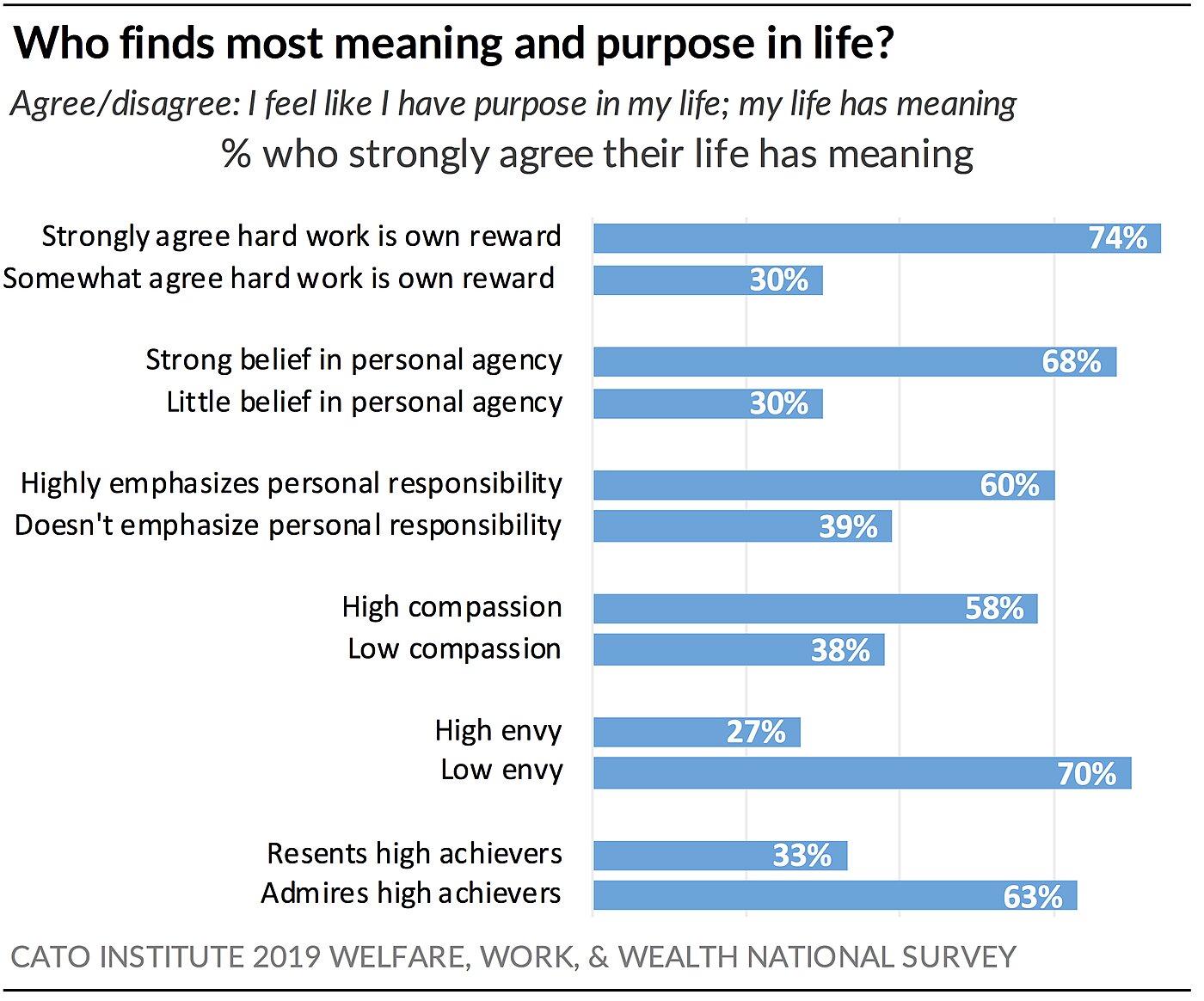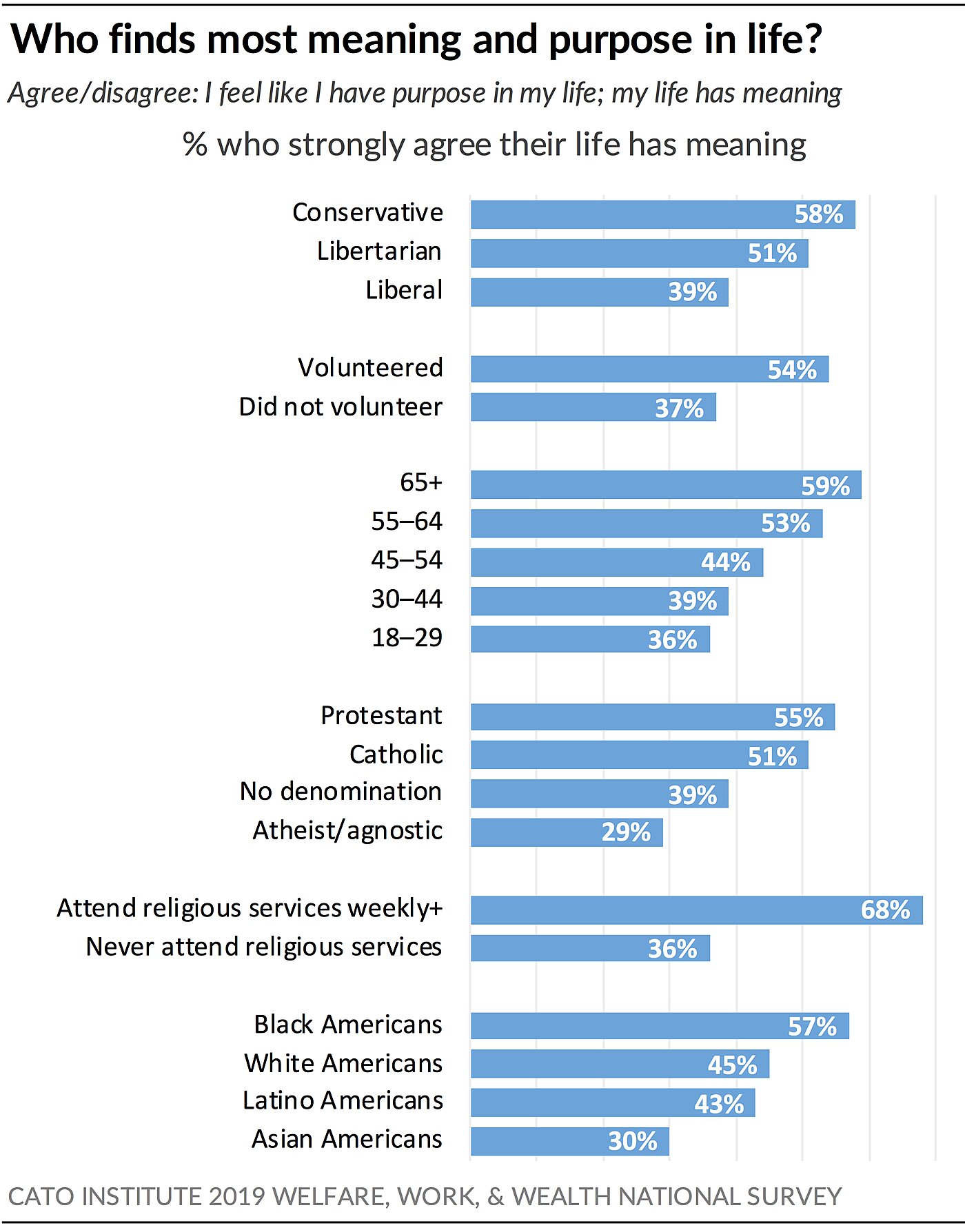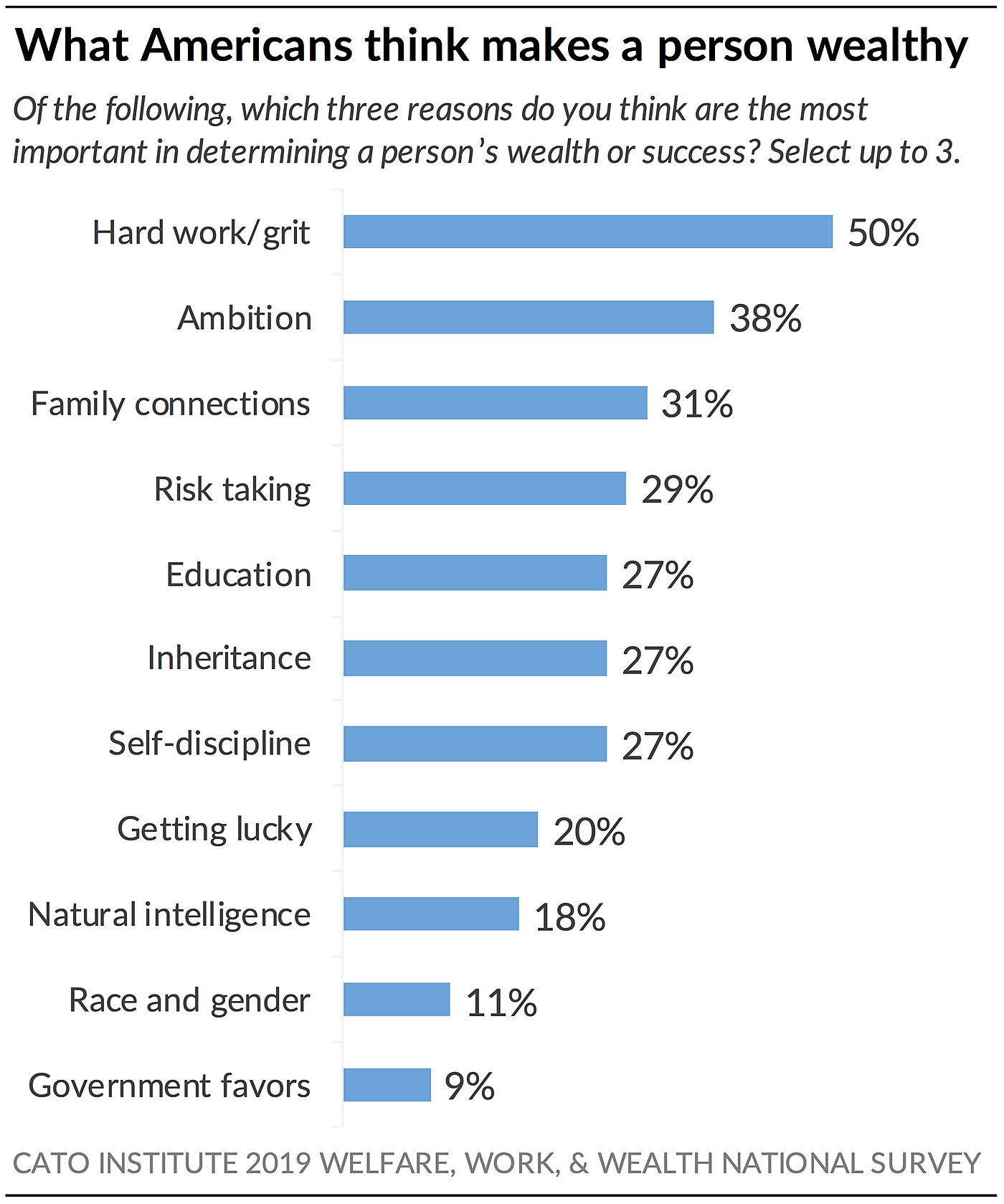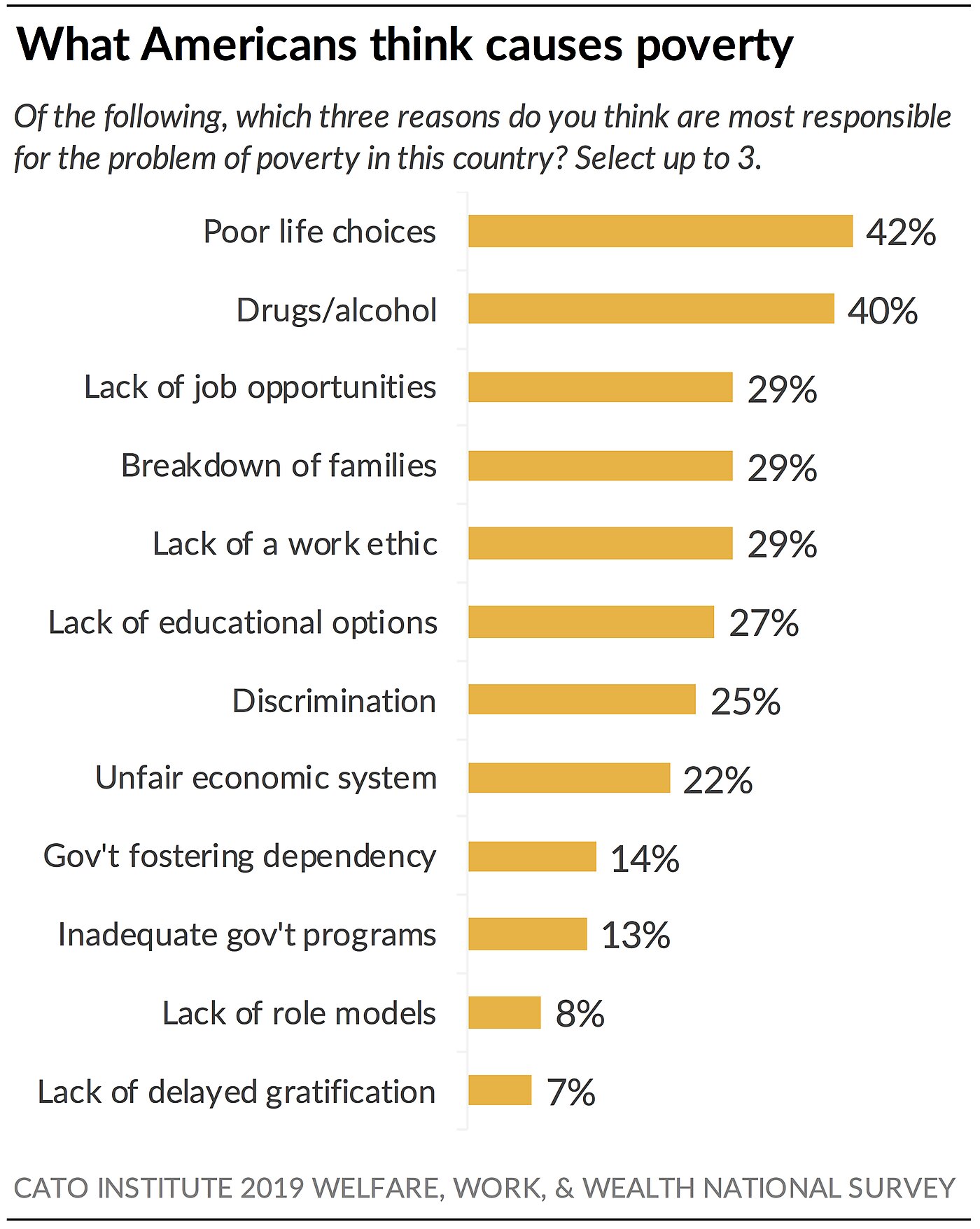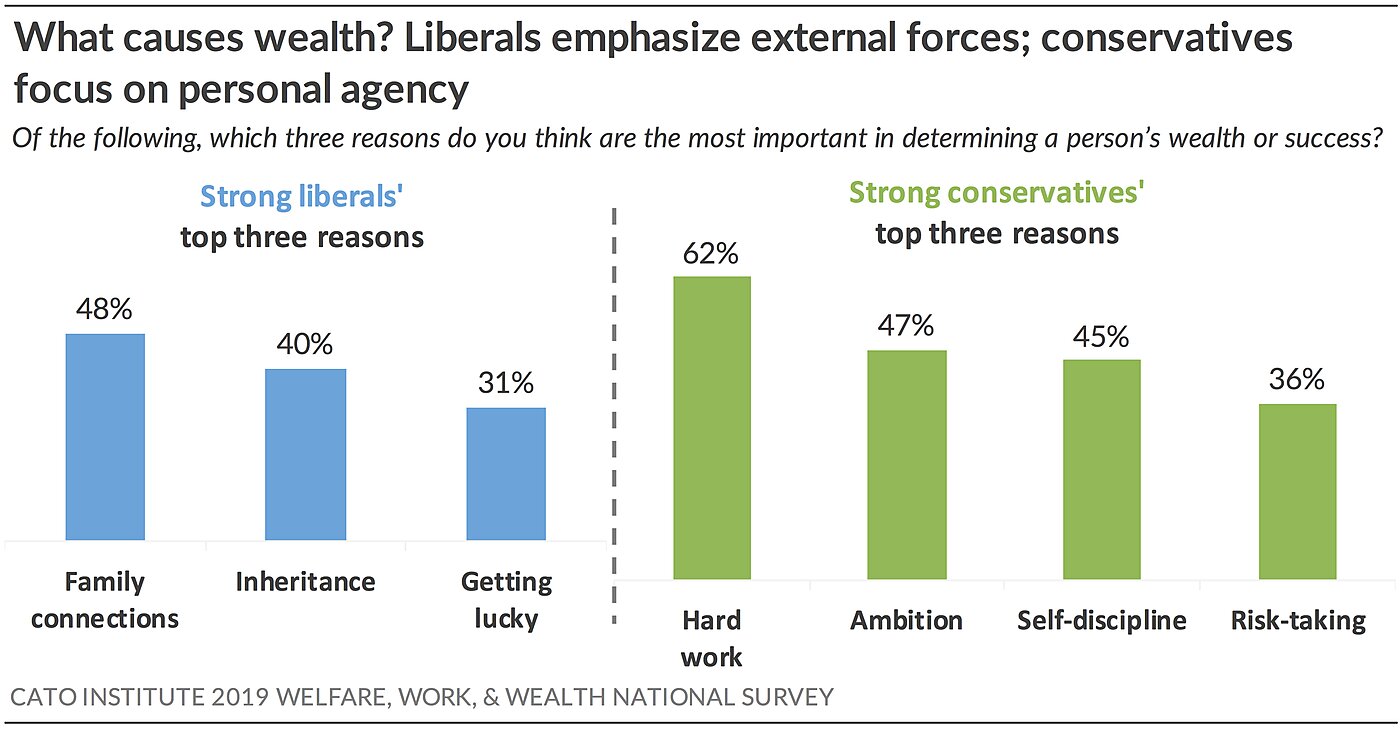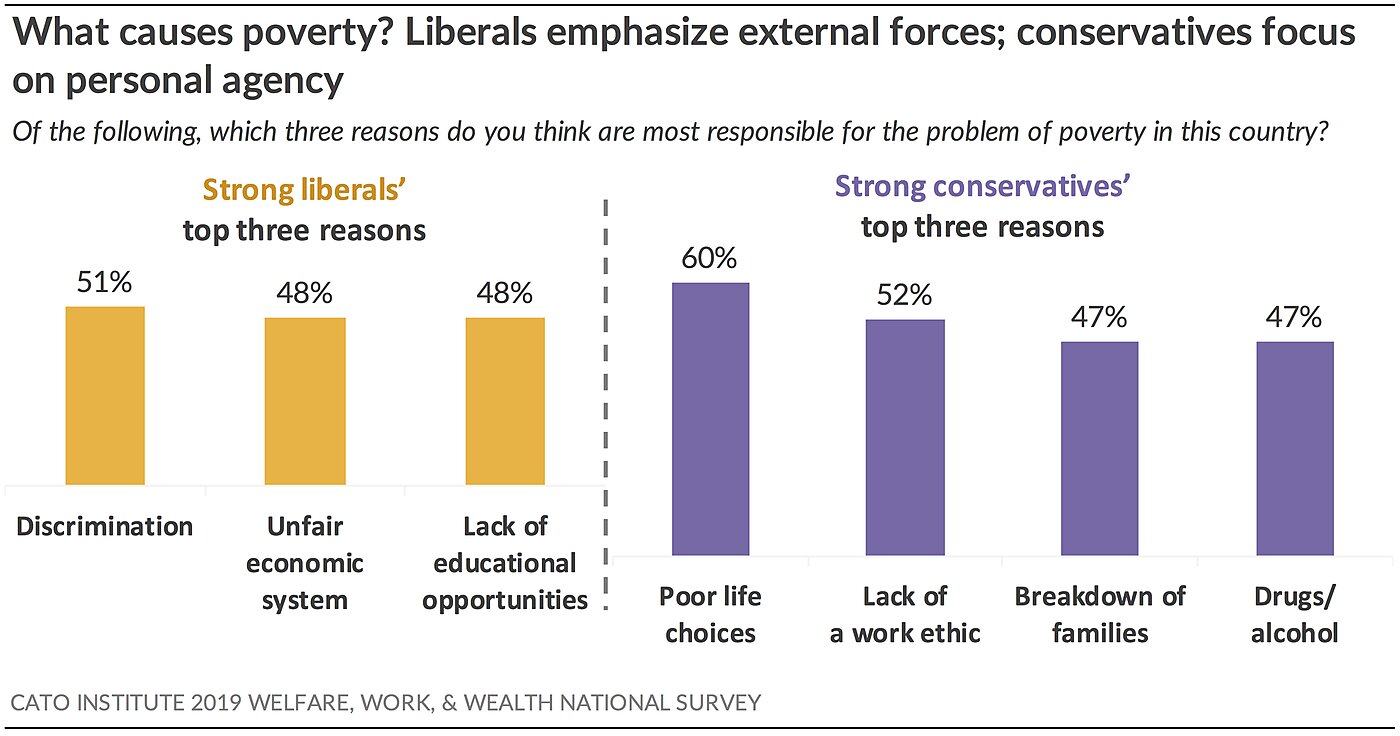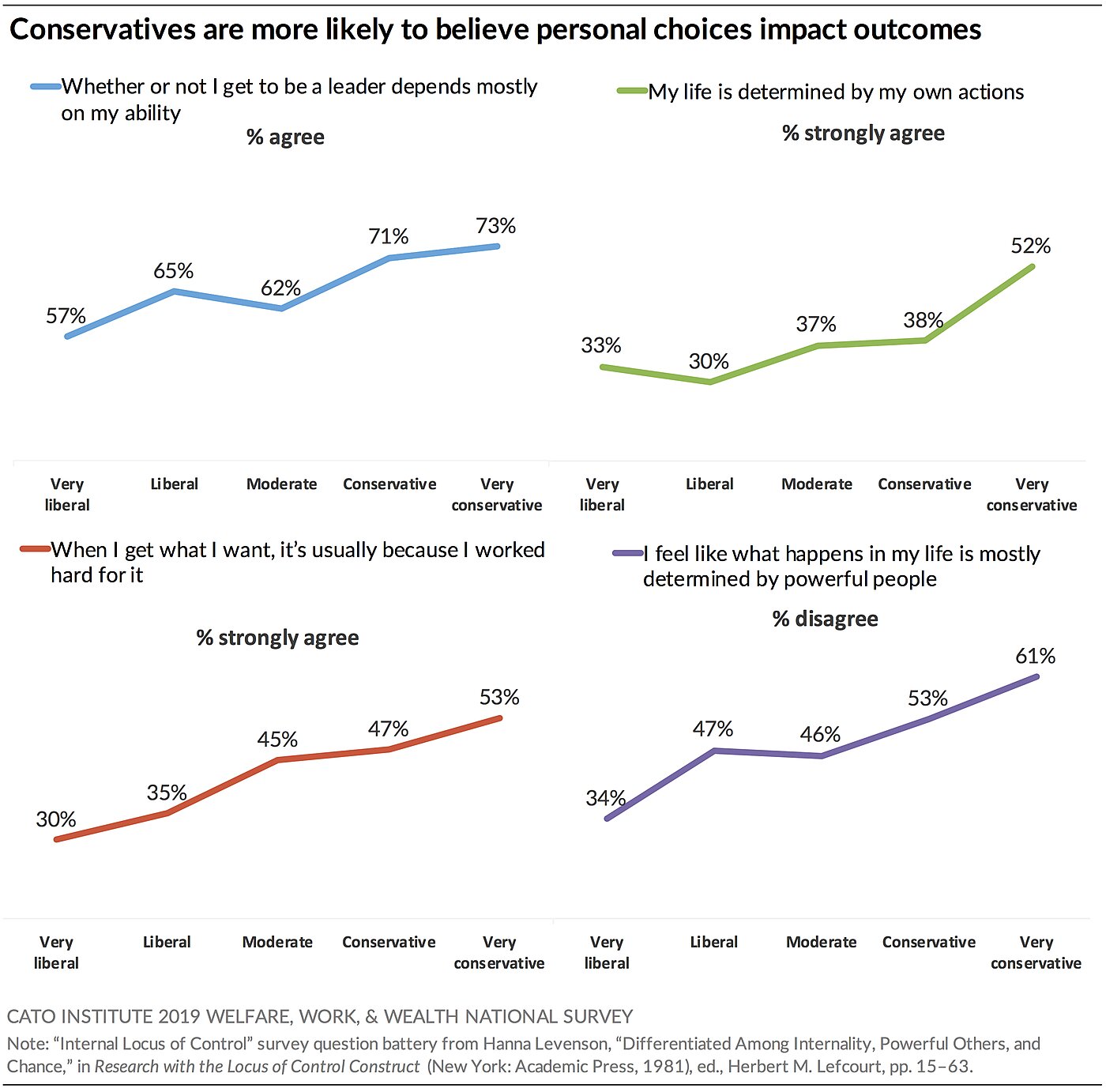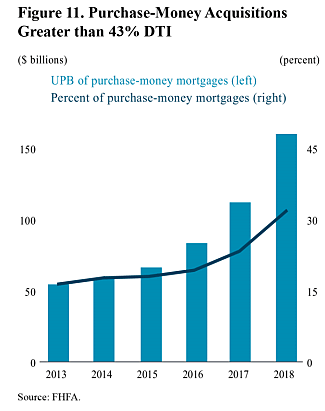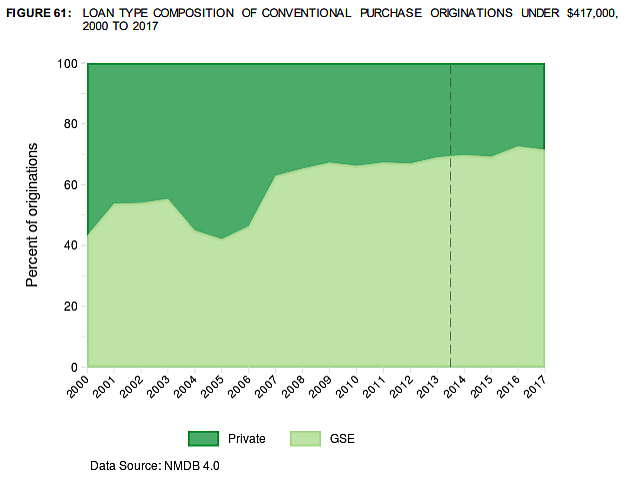The Cato 2019 Welfare, Work, and Wealth National Survey investigated who finds greater meaning and purpose in their lives. The survey found that Americans’ beliefs about hard work, responsibility, and agency may have something to do with it. Overall, 83% of Americans agree that:“I feel like I have purpose in my life; my life has meaning,” while 16% disagree. A little less than half (46%) “strongly agree” and 37% somewhat agree their lives have meaning.
Full survey results and report found here.
Some types of people are more likely to say they have greater meaning and purpose in their lives.[1]People who:
- strongly believe hard work is its own reward (74%)
- strongly believe they have personal agency (68%)
- strongly believe in personal responsibility (60%)
- are very compassionate (58%)
- are not very envious (70%) or resentful (63%)
The aforementioned individuals are much more likely to find meaning and purpose in their lives compared to people who believe external forces direct their lives (30%), don’t emphasize personal responsibility (39%), aren’t very compassionate (38%), are envious (27%), and are resentful of successful people (33%).
These data paint a picture of the psychology of a person most likely to find meaning and purpose in their lives: those who highly value work and responsibility, emphasize what they can control rather than what they cannot, are compassionate, and resist the temptation to feel envy and resentment of others.
Politically, conservatives (58%) are about 20 points more likely than liberals (39%) to strongly agree their lives have meaning. A slim majority (51%) of libertarians strongly believe their lives have meaning.
Demographically, people who volunteer (54%), who attend church more than once a week (68%), religious people such as Protestants (55%) or Catholics (51%), people 65 and over (59%), and African Americans (57%) are more likely to find purpose and meaning in their lives than those who do not volunteer (37%), never attend religious services (36%), are atheist or agnostic (29%), are under 30 (36%), and are White (45%) or Latino (43%) Americans.
Discussion
These data provide some indication that those who seek greater meaning and purpose in their lives may be more likely to find it through identifying inherent value in their work, taking on more responsibility, emphasizing the things they can control rather than what they cannot, and serving those around them. Furthermore, these data also suggest that those who let go of their envy and resentment of others may have greater ability to find their purpose. Some of the demographic differences indicate that people may also find meaning with age, family, and community.
Read more of the survey report here.
The Cato Institute 2019 Welfare, Work, and Wealth Survey was designed and conducted by the Cato Institute in collaboration with YouGov. YouGov collected responses online March 5 to 8, 2019 from a representative national sample of 1,700 Americans 18 years of age and older. The margin of error for the survey is +/- 2.2 percentage points at the 95% level of confidence.
[1]The author compared how much meaning people feel in their lives among Americans who scored high versus those who scored low on a variety of psychological measures of envy, compassion, responsibility, and personal agency. More methodological information can be found here.
- Less Envious: Americans who scored low on the Dispositional Envy Index were 43 points more likely than those who scored high to strongly feel a sense of purpose (70% vs. 27%). (See Appendix D.)
- Compassionate: Americans who scored high on the Dispositional Compassion Index were 20 points more likely than those who scored low to strongly feel a sense of purpose (58% vs. 38%). (See Appendix C.)
- Believe in Personal Agency: Americans who scored high on the Belief in Personal Agency Index were 38 points more likely than those who scored low to strongly feel a sense of purpose (68% vs. 30%). (See Appendix A.)
- Believe in Personal Responsibility: Americans who scored high on the Just Deserts Index were 21 points more likely than those who scored low to strongly feel a sense of purpose (60% vs. 39%). (See Appendix B.)
- Less Resentful: Americans who scored low on the Resentment of High Achievers Index were 30 points more likely than those who scored high to strongly feel a sense of purpose (63% vs. 33%). (See Appendix E.)
